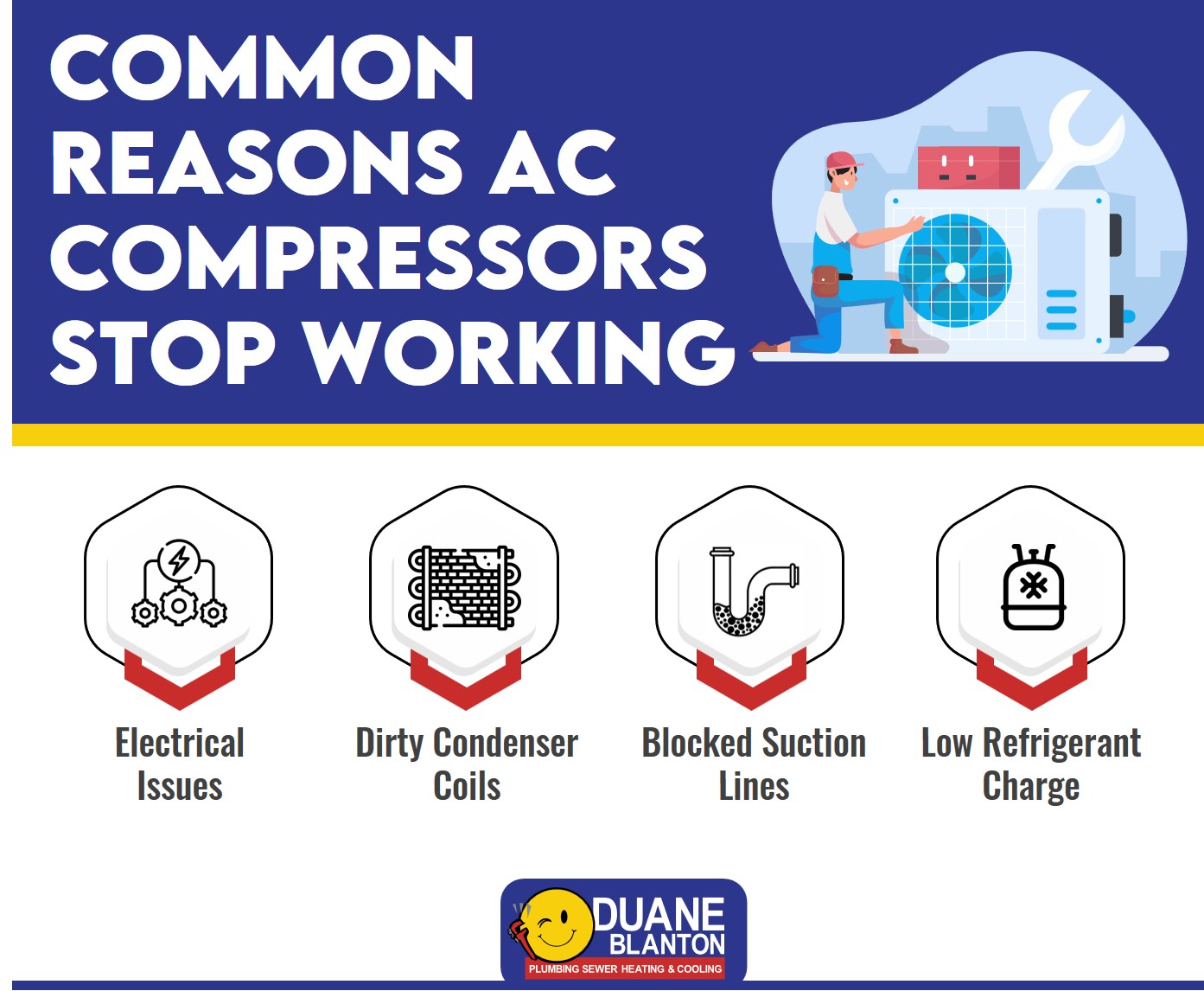The air conditioning compressor is essential for cooling your home and, therefore, vital for your unit’s consistent and effective operation.
Learning the fundamentals of your AC compressor, from its function to its placement and repair needs, will help you understand its connection to your home’s essential systems.
What’s the AC Compressor & How Does It Work?
At its core, an air conditioning unit comprises several motors, valves, and the compressor, all working together as the unit’s hub or control center. Within this hub, the compressor is the key element. It transfers heat from the refrigerant — the liquid that cools the space — to the condenser, which removes heat.
It’s able to expand or contract the refrigerant to increase or decrease temperature. Similarly, it facilitates heat movement and moisture evaporation for improved indoor air quality.
Where Is the AC Compressor?
The compressor is in the outdoor air conditioning unit attached to the home, usually in the center of the unit, near the condenser coils and fans, and hooked into the home through copper tubing.
The outdoor AC unit itself is also physically attached to the home through tubing and is either on the side of the home or in the back, on a solid concrete foundation.
Why Is the Air Conditioning Compressor Important?
The AC compressor facilitates proper heat transfer, and a malfunctioning compressor will cause issues with its functionality and thus interrupt adequate temperature control in your space.
Being the center of your entire air conditioning unit, when the compressor fails, so too will the whole system. However, your compressor will often show signs that it’s having issues before it completely fails.
Such signs may include:
- Odd noises such as ticking, rattling, rumbling, or chattering
- Diminished or restricted airflow
- Frequently tripping circuit breakers
- Refrigerant leaks
- Vibrations when your unit starts
- Warmer airflow
Common Reasons the AC Compressor Stops Working
If your air conditioning compressor stops working, you should first check its power supply. If a flipped switch isn’t the issue, you may have bigger problems that require expert assessment.
Understanding the common reasons your AC compressor stopped working will give you a clear picture of potential repair costs and how to avoid issues in the future.
- Electrical issues: Problems like tripping circuit breakers or faulty wiring disrupt the power supply to your compressor and prevent it from operating correctly.
- Dirty condenser coils: Condenser coils are a part of your AC’s outdoor unit, and they release heat from the refrigerant into the outdoor air. Dirty coils reduce unit efficiency and may overwork or overheat your compressor, potentially causing its complete failure.
- Blocked suction lines: Suction lines carry the refrigerant to the compressor, and when blocked, they cause the compressor to work harder than needed. Over time, this will add wear and tear to the compressor and cause it to overheat.
- Low refrigerant charge: Without adequate refrigerant levels, your compressor works harder to cool the space and may cause it to break down.
Need Air Conditioning Repair in Chicagoland? Call Today
At Duane Blanton Plumbing, Sewer, Heating & Cooling, our licensed and certified cooling technicians deliver comprehensive service to your air conditioner unit, including installation, repair, and maintenance.
You can expect same-day service of all brands backed by upfront pricing and promotions when you choose our family-operated team for air conditioning repair in Chicagoland.
For superior air conditioning repair in Chicagoland, schedule service with us by calling (815) 219-4323 today.
